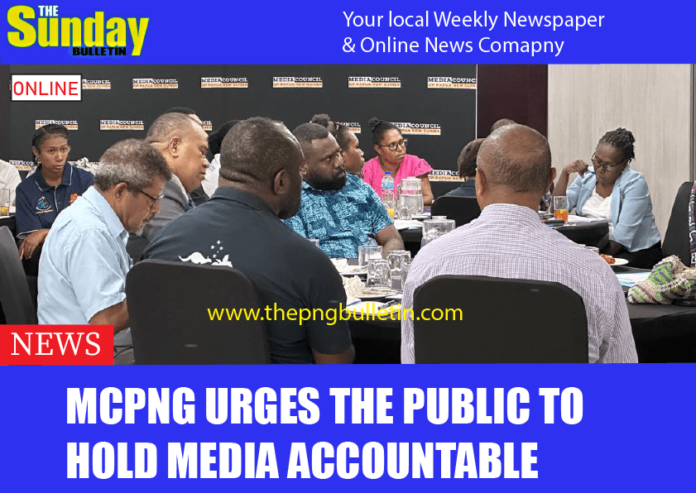THE public has been encouraged to hold media workers accountable for their actions, especially if they violate the Media Council of Papua New Guinea (MCPNG) Code of Ethics. MCPNG President Neville Choi emphasized this point during his address to the National Press Club on Wednesday.
Mr. Choi stressed the importance of the Code in light of the growing scrutiny the media sector has faced over the past three to five years. Public criticism from national leaders and citizens has fueled questions about the responsibility and qualifications of media practitioners.
“The media has been under constant attack, with some questioning its credibility and raising concerns about journalism standards, especially in investigative reporting,” said Mr. Choi. “While there are valid points raised, we must also consider the challenges within Papua New Guinea’s media education system, which has been affected by lower-than-average intakes in journalism training.”
He also highlighted the need for better regulation of social media, where many Papua New Guineans share news without verifying its accuracy, contributing to the spread of misinformation and fake news.
“While the media adheres to strict vetting processes to avoid issues such as libel, defamation, and misinformation, social media platforms remain largely unregulated,” Mr. Choi noted. “This is where much of the public consumes its news today.”
The new MCPNG Code of Ethics, which serves as the industry standard for journalism in PNG, provides guidelines not only for traditional media but also for those producing content on social media platforms.
“This Code will help journalists, editors, and even those in public relations uphold higher standards in their work, ensuring that news shared with the public is accurate, ethical, and responsible,” Mr. Choi said.
The Code also challenges the misconception that journalists are solely responsible for ethical standards in media.
“Consumers of media, especially on social media, must understand that they too have a role to play in ensuring the information they share is credible,” Mr. Choi said. “Fact-checking should be everyone’s responsibility, not just that of journalists.”
The MCPNG reaffirmed its commitment to guiding and supporting journalists, editors, and media professionals across the country as it strives to enhance the standards of journalism in PNG.

